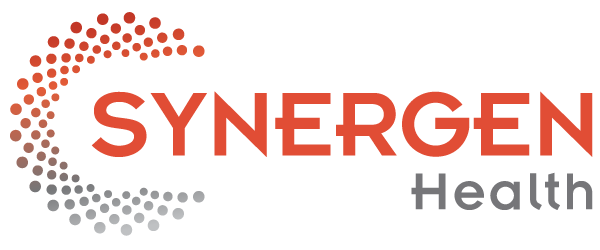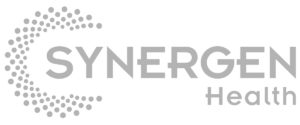Revenue Cycle Management (RCM) in laboratories ensures smooth operations, timely reimbursements, and overall financial health. However, several challenges can impede these goals.
Here are the five major Lab RCM challenges and strategies to overcome them.
1. Delays in Reimbursement
Challenge: Claim processing and reimbursement delays can cause significant cash flow problems for laboratories. Factors such as poor data quality, mismatched diagnosis codes, and complex out-of-network processes contribute to delays of up to 90 days for out-of-network laboratories.
Solution: Streamlining workflows and ensuring clean data are crucial to minimizing delays. Laboratories should invest in technology that allows for efficient data capture and processing. Understanding payer-specific requirements and maintaining accurate credentialing information can also help expedite reimbursements.
Implementing an end-to-end RCM solution that integrates with existing laboratory systems can streamline the entire reimbursement process. Such solutions can automate data capture, ensure accurate coding, and facilitate faster claim submission.
2. Insurance Claim Denials
Challenge: Claim denials are a major issue for laboratories, impacting revenue and cash flow. Denials often result from the overuse of unspecified codes or failure to justify medical necessity. Our data shows that the first-time denial rate for out-of-network laboratories is around 63%, while in-network laboratories have a lower denial rate of 30-40%.
Solution: Laboratories should stay updated with payer guidelines and ensure that the tests ordered are medically necessary and justified. Utilizing technology to track and analyze denial patterns can help identify common issues and implement corrective measures. Educating physicians on proper documentation and test ordering can also reduce denials.
To tackle claim denials effectively, laboratories can implement a comprehensive denial management system. This system can provide detailed insights into the reasons for denials, allowing labs to address specific issues proactively. Automated alerts and reminders for physicians regarding proper documentation and medical necessity can help reduce the incidence of denials.
3. Managing Outstanding Patient Balances
Challenge: Collecting outstanding patient balances can be challenging, particularly when patients receive bills long after services are rendered. This delay can lead to patient dissatisfaction and difficulties in collections.
Solution: Leveraging technology for patient engagement and communication can improve collections. Sending timely reminders and updates about the status of claims and patient obligations can keep patients informed and reduce surprises. Implementing automated patient billing and collections systems can also enhance efficiency and effectiveness. Labs can leverage technology to remind patients about their billing status to avoid lengthy delays and improve collection rates.
Advanced patient engagement solutions can help laboratories communicate more effectively with patients regarding their billing status. Automated email, text, or phone reminders can inform patients about their obligations and due dates. Multiple payment options, such as online portals or mobile apps, can make it easier for patients to pay their bills promptly.
4. Managing Patient Data
Challenge: Poor management of patient data can significantly affect RCM. Inaccurate or incomplete patient data can lead to claim denials and reduced first-time claim processing percentages.
Solution: Investing in technology to ensure the integrity and accuracy of patient data is vital. Laboratories should spend the necessary time and resources to maintain clean data. Implementing robust data management systems and conducting regular audits can help identify and rectify data issues promptly. Clean data directly impacts the first-time claim processing percentage.
By adopting advanced data management solutions, laboratories can automate the data capture and verification process. This technology can ensure that patient information is accurate and up-to-date, reducing the risk of errors. Regular staff training on the importance of accurate data entry and periodic audits can help maintain data integrity.
5. Accurate Coding and Billing
Challenge: Accurate coding and billing are fundamental to successful RCM. However, laboratories often face difficulties in maintaining the accuracy of their coding and billing processes, leading to denied claims and delayed payments.
Solution: Implementing robust validation processes is essential. Laboratories should ensure they use up-to-date CPT codes that correlate with the tests performed. Partnering with third-party entities with certified coders can enhance coding and billing accuracy. Regular training and updates on coding standards and practices are also crucial. Labs must reference quarterly CMS updates to ensure current and accurate CPT codes.
To further enhance coding and billing accuracy, laboratories can implement automated coding solutions that integrate with their laboratory information systems (LIS). These solutions can streamline the coding process, reduce manual errors, and ensure compliance with the latest coding standards. Regular audits and feedback loops can also help identify and rectify discrepancies, leading to more accurate billing and fewer claim denials.
The Recipe for Lab RCM Success
Overcoming these RCM challenges requires a combination of technology, education, and process improvements. Laboratories must invest in systems that enhance data accuracy and streamline workflows while staying updated with payer guidelines and coding standards.
By addressing these challenges proactively, laboratories can improve their financial health and ensure timely reimbursements.
Are you ready to transform your laboratory’s revenue cycle? Let’s talk.

